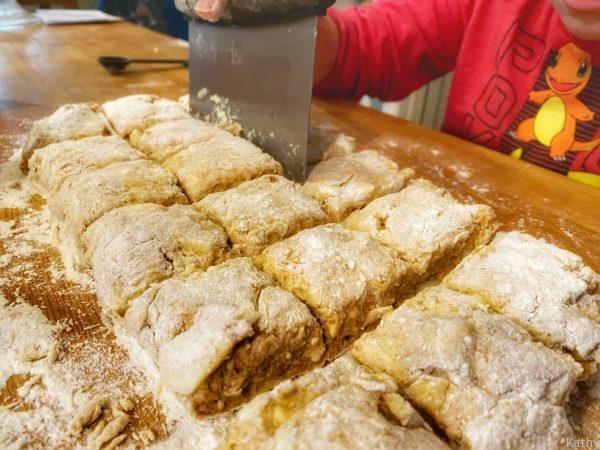
Periodically, someone in my family asks this dreaded question: “What is it that you do again for a living?”
This week, my 8-year-old son asked. I paused, quickly figuring out the best words to describe. You see, I work at a corporation where there are very few tangible products that are seen with physical eyes. There is no office building near me. He sees me do my work on a laptop out of my house. On conference calls, I speak the language called Corporate Buzzword, do you know it? We sell things like platforms, analytics, software and networks. How do I translate this to my 8-year-old?
I mumbled a few words to my son, something like “programs that drive growth and retention.” Luckily, he got distracted with a nearby stack of library books, and had no follow-up questions to my mediocre answer.
My job would be much easier for him to understand if I said, “I am a carpenter,” “I am a farmer,” or, “I am a doctor.” The reason my job is so hard to describe is that it is irrelevant if I turn back time.
I often wonder, what would my life look like if I lived 200 or 2,000 years ago? What would I want to be when I grew up? What jobs would be posted in my village? What would my career ladder look like? What hospital system would be in my network? What banking system would I keep my currency? How do I get my kids enrolled in the best education?
It’s a silly set of questions, from that point in time.
Of course, I’d live in a small tribe. Every family would know how to care for their own family unit and care for the community. Our village would raise the children together. They’d be learning the trade of their fathers or soaking in the skills of their mothers. When the children aren’t doing this, they are at play – all day.
The work in my tribe would include growing food. We would know how to gather the right plants to create salve for our wounds. We would know that food is medicine, which ripens at different points of the year for a reason – the time when our bodies need it the most. We would know how to build and create everyday things – and things of beauty. Currency would be traded in multiple forms – tangible or an exchange of service. In the evenings, we would gather around the firelight to share a meal and make our own music. God lived in our hearts – not accessed via a building, and thus spiritual connection was easily interwoven into our days.
We are taught that our lives are so much better now versus the past. I disagree. If our technology infrastructure and global supply chains failed, would we have the skills to survive and thrive on this planet? Don’t get me wrong. I don’t want to go back in time, I want to infuse the knowingness from the past into today.
I’m going to make a bold statement. To survive and thrive on this planet, all we need to know is:
- How to grow, forage, hunt and store food
- How to find clean water (or purify)
- How to build things
- How to live (and love) in community
Today, I’ve anchored my life hobbies in curiosity as I build a self-curriculum on the above four courses. Not out of fear, rather out of deep re-learning to be human. My children learn close to zero percent of this in school. For me, I learned, then forgot, a good portion of this. These are basic life skills which have been forgotten in this new age.
Where do I want these skills to take me? Do I expect them to take me into a new career? Will I stop going to grocery stores? Am I turning into a survivalist?
No, not at all. The only place I want it to take me, is deeper into my heart, mind, body and spirit. I want it to take me deeper into connection with the rhythm of the Earth. Perhaps with the time I’ll spend digging in the soil, I’ll come up with a better answer the next time someone asks me that question. They’ll ask, “What do you do for a living?” and what I’ll hear is, “What do you do for living?”
Go ahead, ask me. Imagine the fun we will have on the many pathways into this conversation.
Lorna Howarth
Dear Kathy – I completely concur with your words, and have come to much the same conclusion myself. And, as well as leading us deeper into ourselves, these practices also give us joyfulness. Deep joy that we don’t have to save for, purchase and consume – and then buy all over again. No, in learning how to create – our food, our homes, our conversations – we develop and sustain joy. This is what corporations don’t want us to do, because it cannot be monetised. Simple pleasures are just that… like baking scones with Mom; they are the best.
Kathy
“Deep Joy…” that IS such a great way to put it. I never used to understand my own Mother’s joy of the simple things, like finding baby’s breath flowers in the ditches, the first crocus’s of the year, or the sight of a butterfly. But as the days go on, a whole new world has opened up in this regard. Thank you for your musings and similar conclusions!